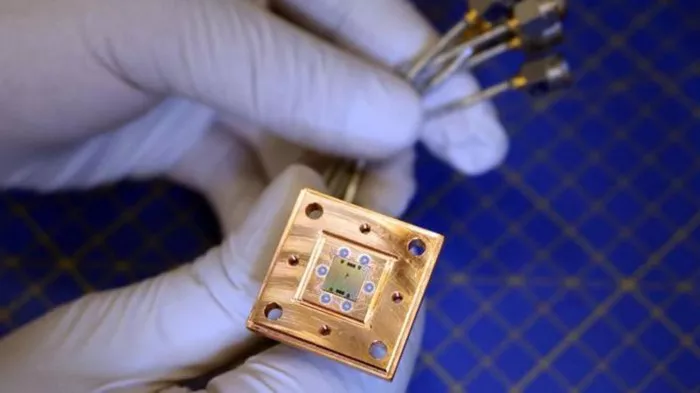Researchers at Chalmers University of Technology (Sweden) and the University of Maryland (USA) have developed an autonomous refrigerator capable of cooling superconducting qubits to record-low temperatures, improving quantum computing reliability. This breakthrough addresses a major challenge in quantum computing: cooling qubits to near absolute zero for optimal performance.
Quantum computers rely on qubits, which can exist in multiple states simultaneously (superposition), enabling powerful calculations. However, qubits are highly sensitive to their environment, and even slight disturbances can cause errors. To function properly, qubits must be cooled to extremely low temperatures, typically just above absolute zero, to enter their lowest-energy state.
Traditional cooling methods, like dilution refrigerators, achieve temperatures of around 50 millikelvin. The new quantum refrigerator autonomously cools qubits to 22 millikelvin, improving their stability. This refrigerator uses superconducting circuits powered by heat from the environment to cool the qubits without external control.
The new method enhances quantum computing performance by increasing the likelihood that qubits are in the ground state—99.97%, compared to 99.8% with previous methods. This improvement boosts the efficiency of quantum computations, bringing us closer to practical applications of quantum technology.
Related topics:

